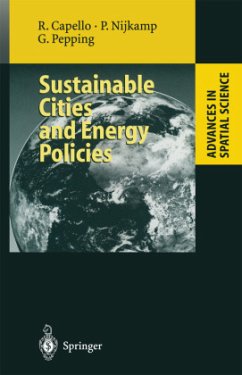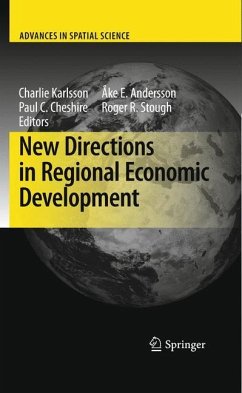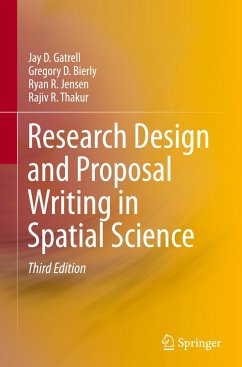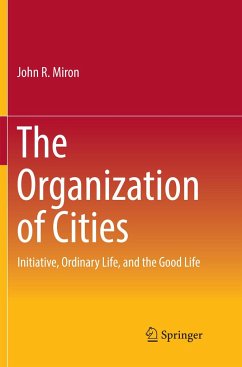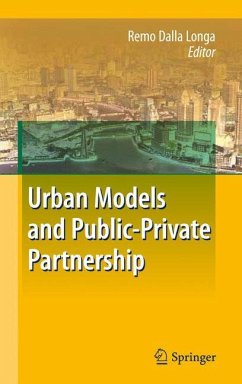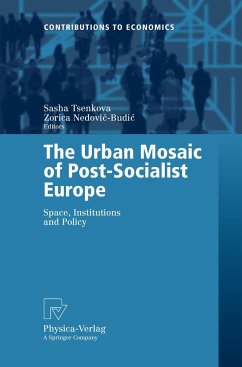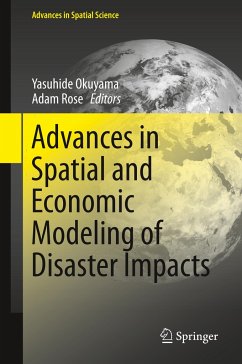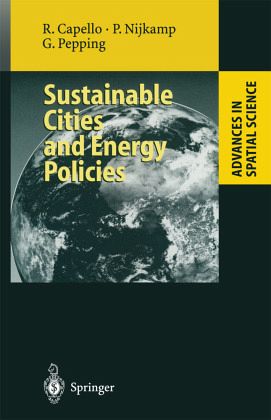
Sustainable Cities and Energy Policies
Versandkostenfrei!
Versandfertig in 1-2 Wochen
115,99 €
inkl. MwSt.
Weitere Ausgaben:

PAYBACK Punkte
58 °P sammeln!
The aim of this book is to highlight the great potential of decentralized (i.e. local or urban) energy policies in achieving environmentally-benign developments for modern cities. Urban sustainability is placed in the context of the debate on global sustainable development. A wide array of policy initiatives is discussed and evaluated, ranging from market-based energy policies to technological innovation policies for the energy sector. A theoretical framework for technology adoption processes is developed and empirically tested. The main question addressed is: which are the critical success fa...
The aim of this book is to highlight the great potential of decentralized (i.e. local or urban) energy policies in achieving environmentally-benign developments for modern cities. Urban sustainability is placed in the context of the debate on global sustainable development. A wide array of policy initiatives is discussed and evaluated, ranging from market-based energy policies to technological innovation policies for the energy sector. A theoretical framework for technology adoption processes is developed and empirically tested. The main question addressed is: which are the critical success factors for successful urban energy policies? This question is also dealt with in a meta-analytic context by assessing and comparing the performance of energy policies in various European cities, with a particular view to renewable energy.





